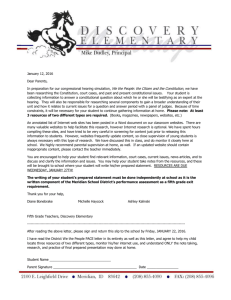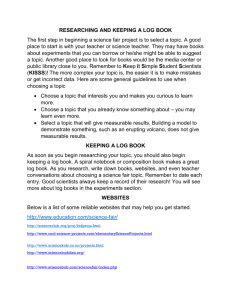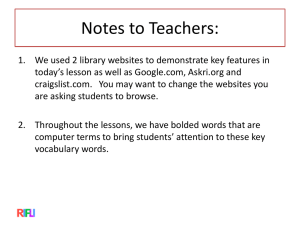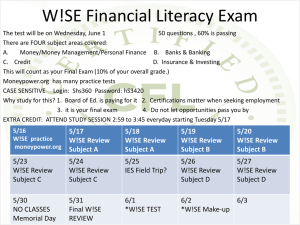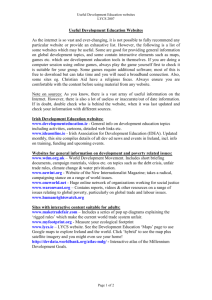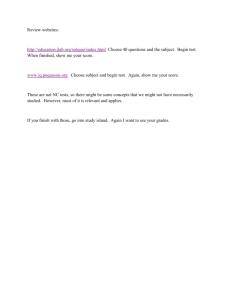Checklist judge websites
advertisement
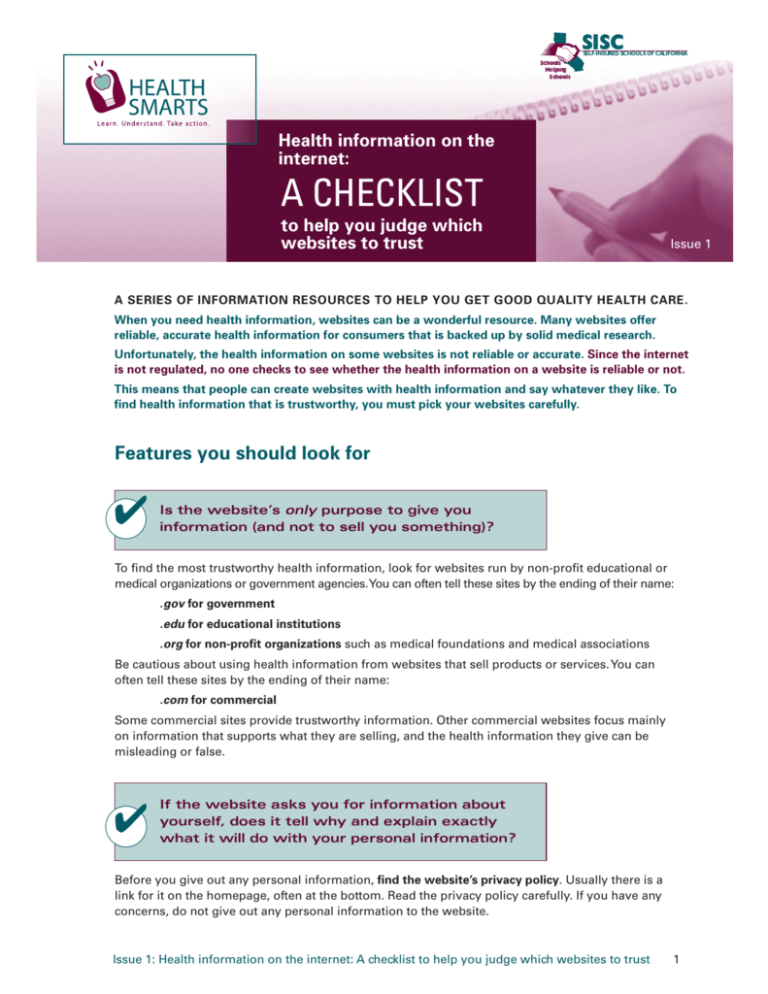
SISC SELF-INSURED SCHOOLS OF CALIFORNIA Schools Helping Schools Health information on the internet: A CHECKLIST to help you judge which websites to trust Issue 1 A SERIES OF INFORMATION RESOURCES TO HELP YOU GET GOOD QUALITY HEALTH CARE. When you need health information, websites can be a wonderful resource. Many websites offer reliable, accurate health information for consumers that is backed up by solid medical research. Unfortunately, the health information on some websites is not reliable or accurate. Since the internet is not regulated, no one checks to see whether the health information on a website is reliable or not. This means that people can create websites with health information and say whatever they like. To find health information that is trustworthy, you must pick your websites carefully. Features you should look for Is the website’s only purpose to give you information (and not to sell you something)? To find the most trustworthy health information, look for websites run by non-profit educational or medical organizations or government agencies.You can often tell these sites by the ending of their name: .gov for government .edu for educational institutions .org for non-profit organizations such as medical foundations and medical associations Be cautious about using health information from websites that sell products or services.You can often tell these sites by the ending of their name: .com for commercial Some commercial sites provide trustworthy information. Other commercial websites focus mainly on information that supports what they are selling, and the health information they give can be misleading or false. If the website asks you for information about yourself, does it tell why and explain exactly what it will do with your personal information? Before you give out any personal information, find the website’s privacy policy. Usually there is a link for it on the homepage, often at the bottom. Read the privacy policy carefully. If you have any concerns, do not give out any personal information to the website. Issue 1: Health information on the internet: A checklist to help you judge which websites to trust 1 Is the health information on the website based on results from medical research? Is it backed up with references to research studies? Evidence from research studies on patient care tells which types of health care work best for particular health conditions.There should be references to articles in medical journals or other sources to back it up. Does the website give the source of the health information? Does it tell whether the information has been reviewed and approved by medial experts? The website should always identify the information source. If you are not able to tell where the information comes from, be cautious about using it. The information may be more trustworthy if it was written by well-qualified health professionals. Is the health information up to date? Is there a regular review and update of the site? A website should include dates that tell you when the health information was prepared. Four good websites to start an internet search The four government websites listed below have information that is reliable and up-to-date. Each of these websites has links that will lead you to many other websites that also provide trustworthy health information. www.medlineplus.gov Run by the National Library of Medicine, this website includes a medical encyclopedia and detailed information on medical conditions and prescription drugs.This site gives you access to Medline, which has publications from all major medical journals. www.cdc.gov This consumer-friendly website is run by the federal Centers for Disease Control and Prevention (the CDC). It includes information on hundreds of diseases and health conditions. www.healthfinder.gov Health Finder is run by the U.S. Office of Disease Prevention and Health Promotion. It has an on-line health library that tells about treatments for hundreds of different health conditions. www.ahrq.gov This website is run by the federal Agency for Healthcare Research and Quality (AHRQ). It focuses on medical research to help improve safety and quality of health care.The consumer part of this website has detailed and practical guides to help you get quality care.The website includes tips on questions to ask about your health care and medical treatments. Issue 1: Health information on the internet: A checklist to help you judge which websites to trust 2 Tips for finding and using health information • Visit more than one website and compare what you find. In general, information is more trustworthy when you find the same type of information on more than one website. • Collect health information from other sources besides websites. For example, you could ask your doctor and other health professionals, your health plan, and libraries. • Talk with your doctor about health information you find on your own. Consider bringing the information with you to a medical visit.You may want to ask questions about it, especially if it disagrees with something you’ve been told. Issue 1: Health information on the internet: A checklist to help you judge which websites to trust 3

